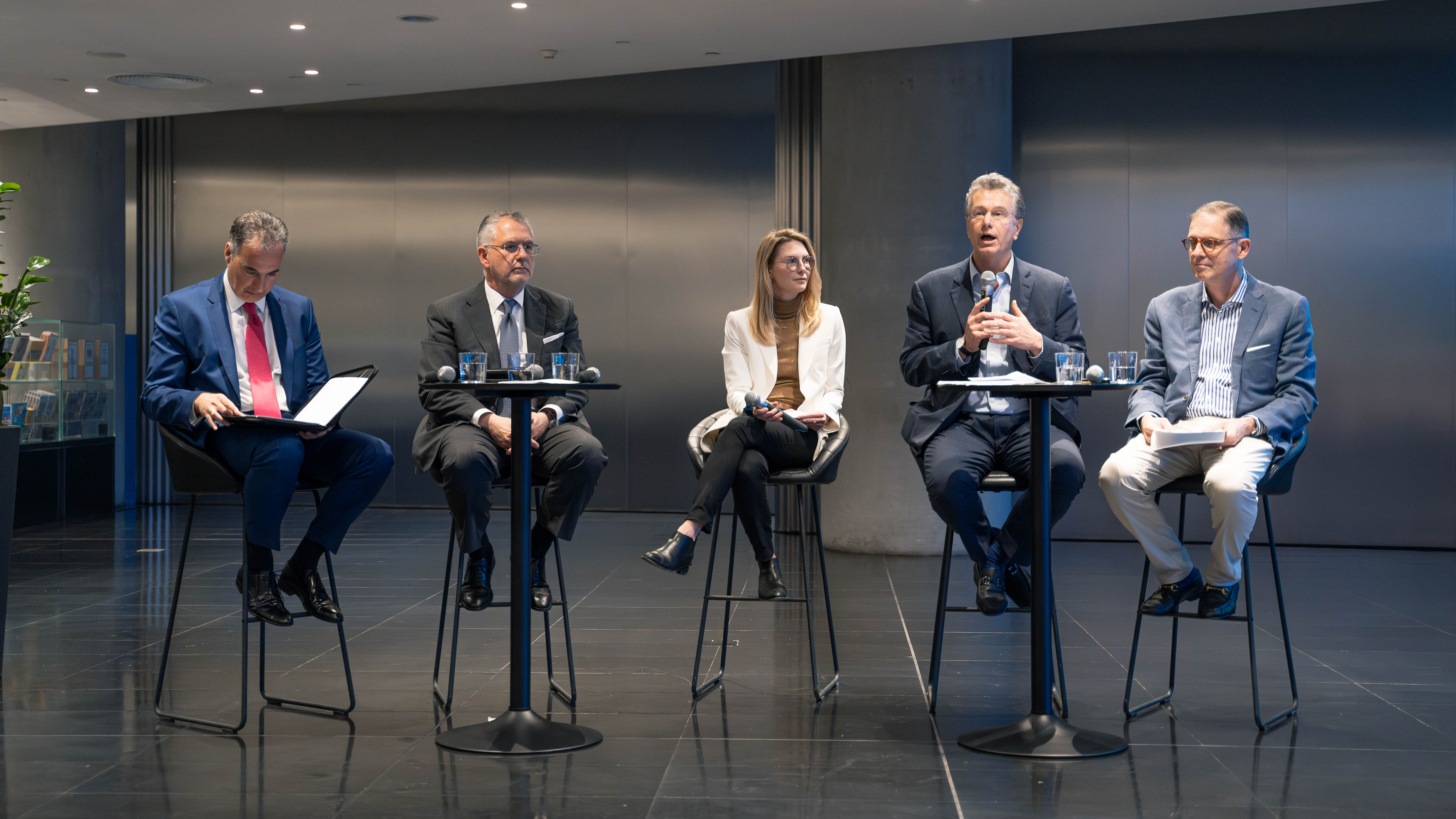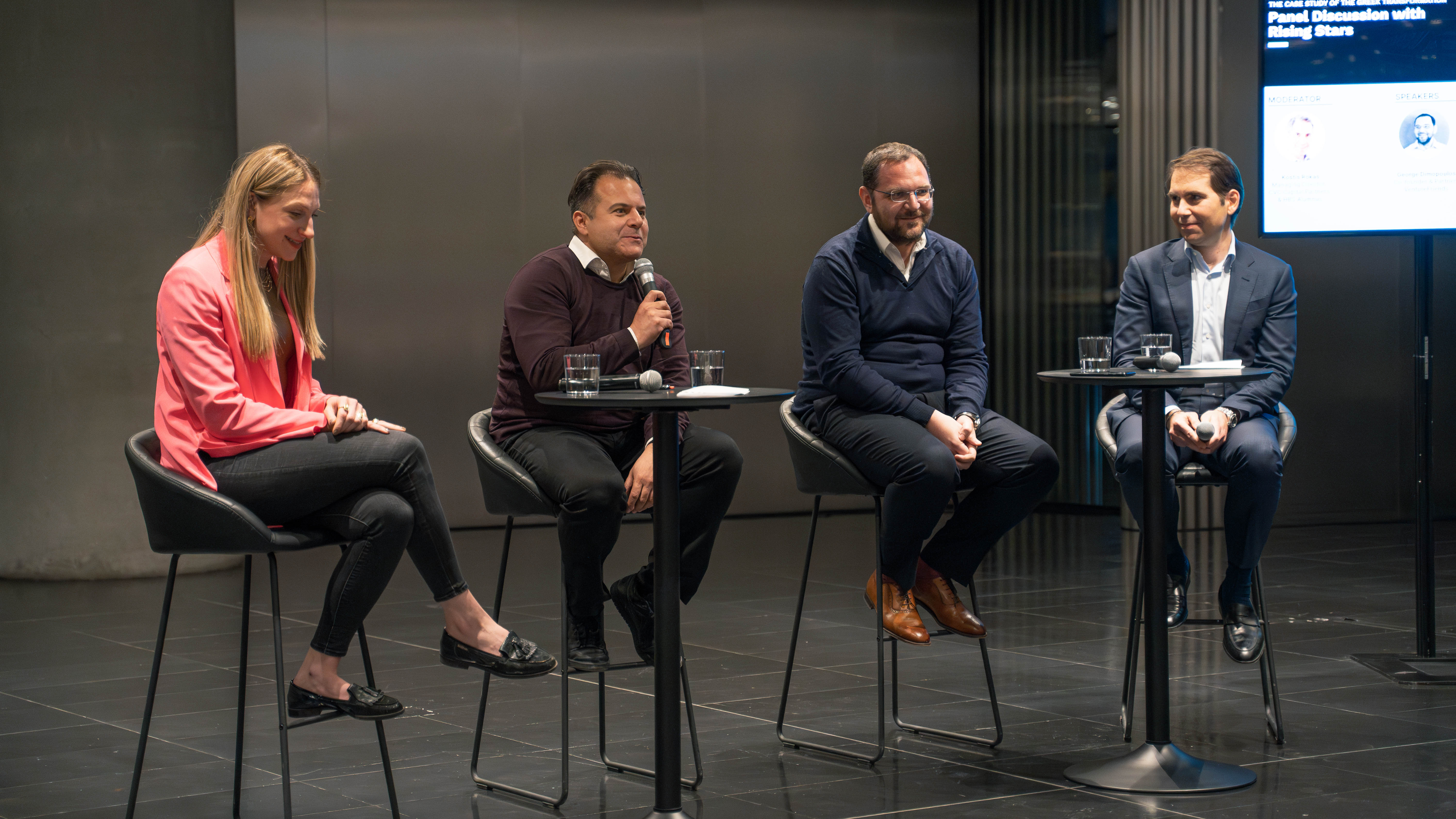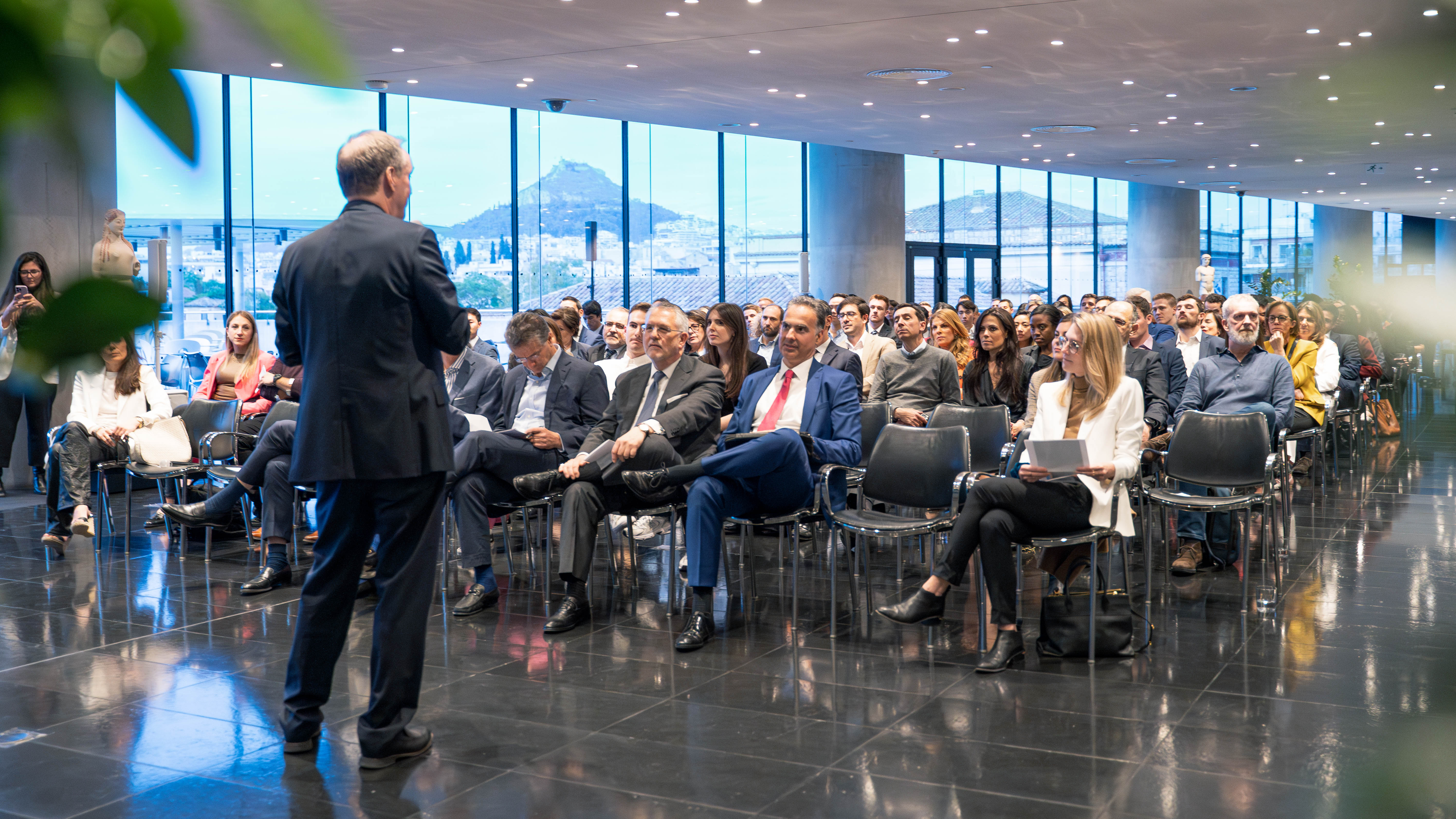Visitors to some of Athens’ most dynamic and dominant businesses last month may have encountered many fresh faces, as 72 first-year Harvard Business School students spread out across the capital as part of the top business school’s global immersion program.
Endeavor Greece was proud to welcome them along with HBS adjunct professor Dr. Alan D. MacCormack at an event at the Acropolis Museum. The event not only introduced the MBA students to some of Greece’s historic treasures, but also the many influential members of the Endeavor network, including Endeavor Greece Chairwoman, Costantza Sbokou Constantakopoulou (co-owner & CEO of Phāea Resorts & Senior Architect of T.E.MES. S.A.), and remarkable HBS alumni such as Board Member Dimitri Papalexopoulos (Chairman of TITAN Cement Group), George Tsopelas (Managing Partner of McKinsey Greece), Board Member Alexander Macridis (Chairman and Managing Director of Chryssafidis S.A.), and George Alexopoulos (Deputy Chief Executive Officer at HELLENiQ ENERGY Holdings S.A.).

We were also lucky to have with us top Greek entrepreneurs from the network including George Dimopoulos, Co-founder & Partner at VentureFriends; Aspa Lekka, Co-founder of JOKR & HBS Alumna; and Alexis Pantazis, Co-founder & Executive Director at Hellas Direct. These entrepreneurs participated in a panel discussion moderated by Kostis Rokas, Managing Director, CVC Capital Partners, and another HBS alumnus.

The FIELD Global Immersion Program
Harvard Business School’s FIELD Global Immersion is a semester-long first-year MBA course that requires students to apply the learnings from their courses to real-world business problems. The course builds global, contextual, and cultural intelligence through face-to-face contact with founders, their business, and their customers around the world.
Students are paired with a Global Partner company in one of 16 cities that has a product or service challenge they would like the team to address with their local consumers.
Enter Greece!
This year the FGI program chose Athens as one of the 15 participating cities worldwide for the second time in a row. Twelve Greek companies, most of which were nominated by Endeavor Greece and selected by HBS, hosted 72 students in Athens while they worked to help solve business challenges at their partner companies.
We were honored to have hosted such great minds in the city where democracy was established and have them with us at our welcome event at the Acropolis Museum where they shared with us their insights on the Greek Tech Ecosystem and our placement on the Global innovation map.

Why Greece?
Why did HBS choose Greece again as an FGI destination? Greece presents an interesting case study in overcoming challenges and building on nascent advantages.
Despite or perhaps because of its recent challenges, Greece has shown remarkable adaptability to changing global trends. The increasing prevalence of remote work has been seamlessly integrated into the Greek lifestyle, offering the flexibility for professionals to better balance work and life. Greece's commitment to quality of life has positioned it as an attractive destination for talented Millennials and members of Gen Z, who value work-life balance, cultural experiences, and a thriving social scene. These shifts have amplified Greece's competitive advantages, namely its world-famous lifestyle brand and abundant human capital.
At the same time, Greece still faces certain traditional competitive disadvantages such as a small domestic market with limited economies of scale and relative distance from major markets, though these hurdles are gradually shrinking as the country progresses.
In a global landscape where knowledge holds greater influence over success compared to capital, Greece has the potential to effectively harness its advantages to overcome its limitations. How Greece can accomplish this and position itself as a thriving hub for intellectual capital and technological advancements, through both business innovation and sound government policy, is a knotty and rewarding problem for HBS’ visiting students to engage with.
The way forward
Over the previous decade, Greece captured international attention for all the wrong reasons, facing a crisis that was longer and deeper than the Great Depression. However, Greek society displayed remarkable resilience and today Greece finds itself in a better position than is commonly acknowledged. There is an undeniable sense of optimism in the air.
Greece possesses exceptional geographical advantages, a highly skilled workforce, and an attractive corporate and dividend tax system, making it an enticing destination for investment. The global rise of remote work has further enhanced Greece's appeal as a business location. In addition, the country's political stability and strong affiliations with the EU and NATO position it as a potential investment gateway for the region. Meanwhile, technology will continue to play a vital role in Greece's path toward economic advancement.
Our welcome event encouraged Harvard Business School’s first-year MBA students to participate in Greece’s optimism and help companies find ways to harness it. We were honored to host them and highlight a select group of our high-impact entrepreneurs, showcasing the innovative potential that thrives within our nation.

With a bright future ahead, Greece invites anyone with talent, ambition, and a positive vision for the future to consider being part of its journey in one way or another. The country's potential for growth, revitalization, and innovation is a magnet for those seeking new opportunities, collaborations, and meaningful contributions.
By placing Greece firmly on the global stage, welcoming talented individuals, showcasing entrepreneurial success stories, and emphasizing the significance of participation, we can pave the way for a dynamic and prosperous future. Together, we can unlock Greece's full potential and create a collaborative environment that fosters innovation, excellence, and mutual growth for all involved.
